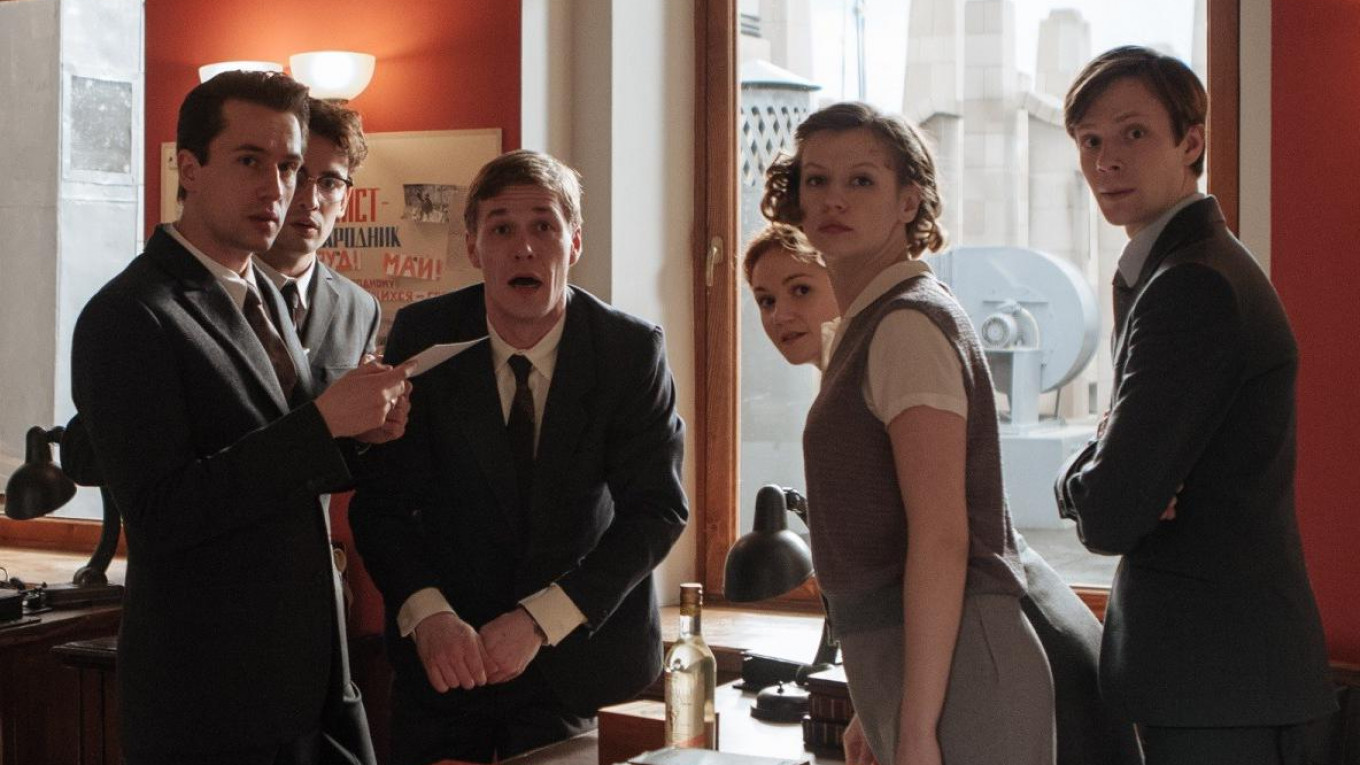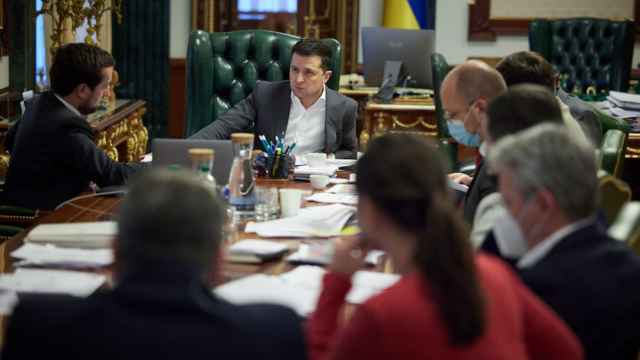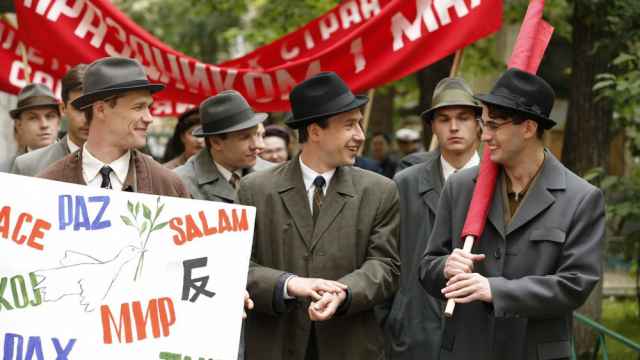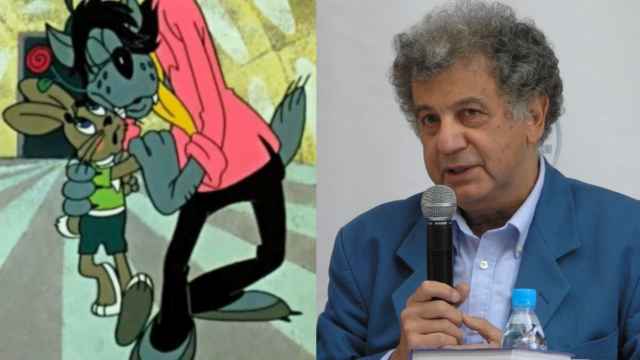Less champagne in the glass is better!” shouts director Alexei Popogrebsky to a crowd of well-dressed people in a restaurant. “Mingle, eat, have a great evening!”he adds, before retreating to a set of screens behind the glass wall of the restaurant.
We are at the Palace of Pioneers, a brilliant piece of early Soviet architecture, built at a moment that the nation was in the grip of space euphoria. For several evenings it has been turned into a trendy restaurant and part of the set for a new Rossiya TV series called “The Optimists.”
The series explores the lives and relationships between a group of young diplomats who work for the Strategic Analysis Group, a fictional proto think tank supposedly established within the Ministry of Foreign Affairs during the Khrushchev era.
Michael Idov, one of the series’ co-authors and screenwriters, shows me around. The original idea for the show came in 2010, he says - formed while he was working on a book called “Made in Russia: Unsung Icons of Soviet Design.” The book focused on the 1960s and space-age design.
Idov found inspiration in the work done by the Russian Research Institute of Technical Aesthetics VNIITE during the period. He enthuses about the “truly innovative and groundbreaking projects” launched by the “really progressive young men and women” who worked for the institute.
“I loved the idea of this group of people that was ahead of its time and yet somehow forgotten by history,” he says.
His coauthor at the time, Mikhail Shprits, came up with the idea of moving the story into the realm of international politics. The series has been released right at the peak of interest in the 1960s and Khrushchev’s short-lived “Thaw” period. Exhibitions devoted to the period are currently on view at two of Moscow’s major museums: the Tretyakov Gallery and the Pushkin Museum. It’s no coincidence that the series’ producer is Valery Todorovsky, creator and director of “The Thaw,” a critically acclaimed TV series about the same period.
The show opens with the 1959 American National Exhibition in Sokolniki, where we first meet the main characters.
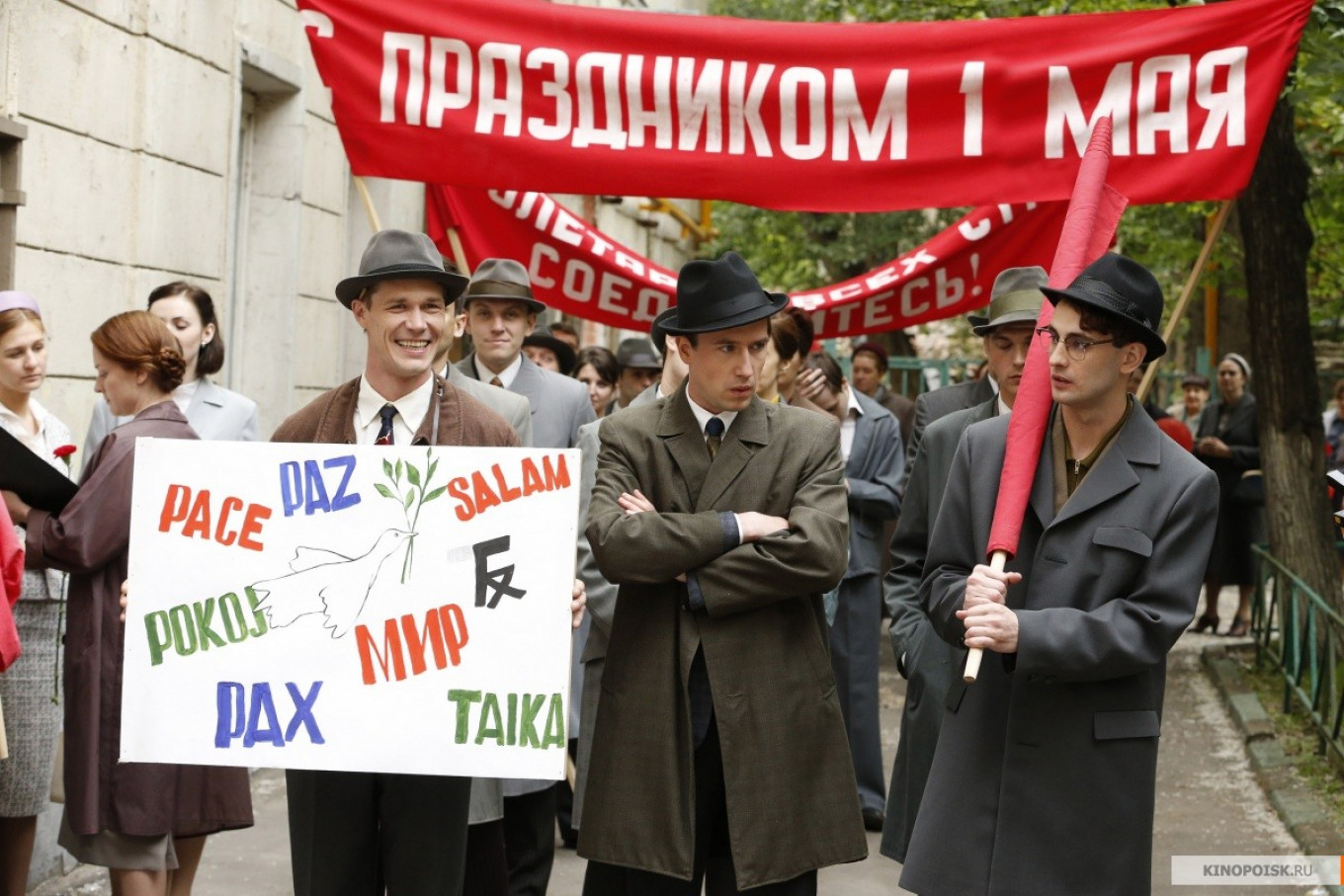
They are an unusual set of personalities. Idov explains that the writers had to come up with several characters “who, within the confines of the Soviet Union would have one foot in the West and one in the USSR.”
So you meet Ruta Blaumane, an American Communist who fled to the USSR in the 1950s at the height of anti-Communist persecution in the U.S.
Next is Andrei Muratov, the child of Russian aristocrats born in Paris, whose parents were naive to heed Stalin’s invitation to Russian immigrants to move back to the USSR after WWII and help rebuild the country. Of course they ended up in labor camps, and Muratov survived only by renouncing his parents and becoming a Soviet poster boy.
Then there’s Leonid Korneyev, a simple working-class guy, who grew up in a children’s home together with orphans of the Spanish Civil War. That’s why Spanish is his second native language, you see, and why he’s close friends with the new Castro government in Cuba.
In the first episodes viewers may discern a certain naïveté reminiscent of Soviet comedies, which is almost absent as the series concludes. Idov says this has been intentional: “We start by slightly lulling the viewer into a comfort zone with references to classic Soviet films of the era. Our characters inhabit a ‘movie version’ of the Soviet Union. As the plot progresses we take both them and the viewer out of this comfort zone.”

Idov says that he and director Popogrebsky invented a perfect term for their TV genre: “‘July rain’ over the ‘Bridge of Spies’.”
The former is a Soviet drama film directed by Marlen Khutsiev, while the latter is an Oscar-winning spy thriller by Steven Spielberg.
“It’s basically Soviet new-wave atmosphere over an ironclad Hollywood structure,” explains Idov.
No decision about a second series has been finalized yet, but the writers have already developed a plot and are ready to go if it’s given a green light. There are also ongoing negotiations with Netflix and other distributors to make it available to Western audiences.
And the “optimists” themselves? They ultimately turn out to be not exactly all that they seem.
“We bring all the characters to a moment of moral choice, when their optimism in the Soviet system and future, and their ability to improve it within, comes into conflict with what the system does to them and their loved ones,” says Idov.
A Message from The Moscow Times:
Dear readers,
We are facing unprecedented challenges. Russia's Prosecutor General's Office has designated The Moscow Times as an "undesirable" organization, criminalizing our work and putting our staff at risk of prosecution. This follows our earlier unjust labeling as a "foreign agent."
These actions are direct attempts to silence independent journalism in Russia. The authorities claim our work "discredits the decisions of the Russian leadership." We see things differently: we strive to provide accurate, unbiased reporting on Russia.
We, the journalists of The Moscow Times, refuse to be silenced. But to continue our work, we need your help.
Your support, no matter how small, makes a world of difference. If you can, please support us monthly starting from just $2. It's quick to set up, and every contribution makes a significant impact.
By supporting The Moscow Times, you're defending open, independent journalism in the face of repression. Thank you for standing with us.
Remind me later.


